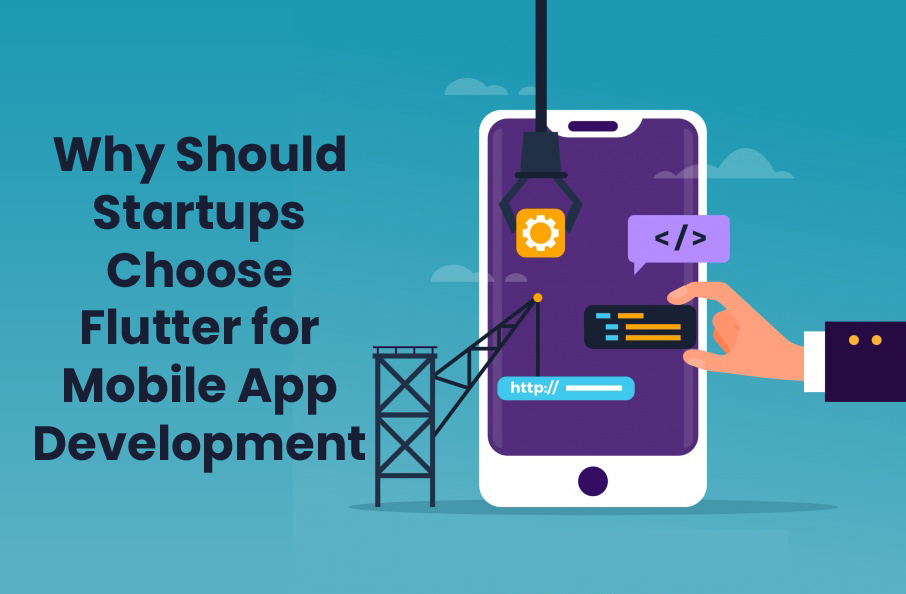Why should startups choose Flutter when planning to launch a mobile app development? This is a question that most bootstrappers or startups ask when they are unsure of which direction to go. Starting your startup on the wrong foot will put you out of business faster than you can blink and will add you to the statistics of the ‘90 percent of startups that fail every year.’
If you want to understand the logic behind things like on-page or off-page SEO techniques, then you should keep reading.
Flutter is one of the leading mobile app development technologies that have continued to make a lot of impact in the mobile app industry. It is revolutionary, and many regard the platform as era-defining, thanks to the ease of creating cross-platform applications with native user experience.
Flutter has the support of Google, the world’s most prominent search engine. It has created a niche for developing high-quality mobile applications faster and with a clear cost advantage. And that is why Flutter for Mobile App Development is presently the most preferred solution for startups looking to boost their businesses.
What is a Startup?
A startup is a small but budding organization equipped with the ability to upscale without maximum or minimum employee count. Startups are, in most cases, young ventures that are driven by a passionate entrepreneur or group of entrepreneurs.
Startups have limited budgets because they are small companies but are looking to generate revenue via their products and services.
Entrepreneurs usually start their companies with fantastic and profitable ideas. They typically look for people – or angel investors – or organizations that can invest or join so that the concept becomes a reality. Funding is a fundamental requirement for research, development, testing, and marketing, as these will enable your startup to build a solid and credible brand image.
Startups need to boost profits and minimize expenses. Therefore, they are always searching for the best platform to build effective mobile applications. And one of the best platforms that most startups turn to these days is Flutter.
Moreover, Flutter is even backed by global brands and trustable names like Tencent, Alibaba, Hamilton Musical, etc. leading to improved trustworthiness of the platform and reliability. This has cleared all doubts as regards its remarkable performance in the highly competitive tech world.
What is Flutter?
Flutter is a power-packed, feature-based platform that is heavily backed by Dart Language developed by Google. It is an open-source SDK (Software Development Kit) launched by the #1 search engine for developing scalable, high-performing, and robust mobile applications for multiple operating systems via a single codebase.
The platform provides a robust framework for mobile application development. It is loaded with a wide array of advanced features, out-of-the-box fixes, multiple helpful widgets, and so much more.
Many experts in the tech and business world believe Flutter to be the perfect choice for developing intuitive and powerful mobile applications. Developers who are very familiar with JavaScript and Java will experience no challenges to learn and understand Google’s in-house Dart Language.
Moreover, the platform offers users excellent community support, along with several tutorial guides. Mobile app developers with little experience can get started on this cross-platform framework without any hassle.
Flutter for Mobile App Development: The Dilemma that Startups Face
The #1 dilemma faced by most startups as well as developers while developing mobile applications that will appeal to new and existing customers is the choice between cross-platform apps and native applications.
As you well know, the tech world keeps evolving and moving almost at break-neck speed. And businesses looking to increase their customer base should not focus on just two operating systems. Since customers are varied and use different operating systems to access the web, it makes a lot of sense to serve several platforms all at once.
For instance, there are presently more than 3.1 billion tablets and smartphones actively connected to one network or the other and can access the internet at any time. These mobile devices run on different operating systems such as iOS, Android, or Windows.
Emerging technologies like Flutter have powerful cross-platform capabilities. They allow mobile apps to serve numerous platforms from a single development phase. This is achieved without sacrificing quality or user experience.
There are over 1.84 million mobile apps available in Apple’s app store and 2.7 million apps in Google Play Store. Mobile app development is now the urgent need of the hour for businesses of all sizes and across all domains.
And this implies that there are several platform options available for startups to develop mobile applications. However, why should startups choose Flutter for mobile app development? The answer to this question has been dealt with in this article, so read on.

Advantages of Flutter for Mobile App Development
Flutter offers several benefits that attract both business owners and mobile app developers.
1. Ease of Development
Flutter uses a single codebase, making it easy for developers to create different mobile applications. The platform comes with its own code libraries and a vast community of professional developers. This setup requires far less effort to build apps. The design tools and libraries from Google have made the process even more straightforward compared to other app development platforms.
Explore More: The Essential Flutter Dev Tools You Should Know
2. Low-Cost
Startups with limited budgets often cannot afford expensive native app development. Native development is costly because developers must write different codes for each operating system. In contrast, Flutter uses a single code base to build mobile apps that work flawlessly on multiple platforms. This approach significantly reduces development and maintenance costs, which startups greatly appreciate.
3. High Performance and Efficiency
Flutter mobile apps provide optimum efficiency and excellent performance on any device. The platform offers a lean, lightweight output, efficient development processes, fast loading speeds, and navigational ease. You can build mobile applications that compete with APIs built on high-performing frameworks like React or Vue. This cross-platform framework also offers optimized designs through its custom widgets.
4. Lower Testing Time
Testing and qualifying a single application built on one codebase is faster and easier than testing apps based on different codebases across multiple platforms. Flutter for Mobile App Development makes this process even smoother.
5. Keep Up the Spirit of Entrepreneurship
Startups often struggle to maintain the spirit of efficacy and initiation, which is the foundation of entrepreneurship. New businesses commonly fail to balance growth with continuous maintenance, which hurts efficiency. The straightforward Flutter platform helps startups remain highly productive and efficient quickly, freeing entrepreneurs to focus on more critical tasks.
6. Easy-to-Use Plugins
Developers have a wide range of plugin choices for cross-platform app development, which makes the entire process more comfortable and flawless.
7. Code Reusability
One of the most significant advantages of this framework is code reusability. Developers can use one code for multiple platforms, saving at least half the time they would spend coding native mobile applications.
8. Ahead of React
React is a JavaScript library that has enjoyed great popularity for its capabilities in creating feature-rich mobile apps for multiple platforms. Taking inspiration from React, Flutter now offers a lesser learning curve, ease of use, cost advantages, and faster development in several respects.
9. Lower Learning Curve
Cross-platform app developers find Flutter easy to use because the framework has a clean structure and a reserve of pre-designed tools. These tools make app development less time-consuming and easier, significantly lowering the learning curve. With its substantial library of pre-designed elements, Flutter makes setting up a project incredibly easy, keeping the focus on the user.
10. Firebase as the Back-end
Google provides Firebase, a robust back-end solution that integrates with Flutter. This combination delivers out-of-the-box support, a hosting solution, a real-time database, user authentication, and other key back-end features. For startups, Firebase’s features help cut down back-end development processes and related costs. Its automation tool for app releases also makes launching and updating apps seamless.
Explore More: What Is Best for App Development: Flutter Vs Dart Language?

Explore More: What Is Best for App Development: Flutter Vs Dart Language?
Why Should Startups Choose Flutter?
Flutter comes packed with an impressive number of features that help create great, high-performing, and innovative mobile applications.
Launched in 2018, Flutter has become incredibly popular for creating high-performance apps quickly. This makes it the ideal technology solution for building a minimum viable product (MVP) application with a limited budget.
What is the Future of Flutter Applications?
Google is currently working on a new platform called Fuchsia, a hot topic in the tech universe. Flutter mobile app developers are excited because Fuchsia will use Flutter as its foundation.
While not yet officially released, Fuchsia relies heavily on Flutter for its developmental coding and designs. This new platform is poised to become a center for the major ‘Internet of Things’ (IoT), a crucial aspect of the future.
The release of Fuchsia will likely significantly boost Flutter’s image in the market. Soon, Flutter for Mobile App Development will be a leading name in the cross-platform industry.

Conclusion
Flutter for Mobile App Development will continue to grow in the business world, with more startups turning to this remarkable cross-platform framework for their mobile application needs.
Global leaders and brands back Flutter, giving it strong credibility. According to AppBrain, Flutter mobile applications currently make up about 0.2 percent of all mobile apps, with a 0.06 percent install rate.
Startups with limited budgets always look for ways to grow and expand using a bootstrapped financial model. They turn to Flutter to develop feature-rich and innovative mobile applications. Used efficiently, this framework can help startups not only grow but also thrive in a highly competitive business world with its better code libraries, designs, widgets, and back-end support.
So, why should startups choose Flutter for Mobile App Development? The reasons are numerous, as we’ve discussed. If you are launching a new business, look no further than Flutter for your mobile application needs.
